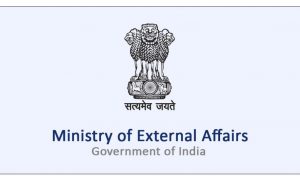China’s funding in Pakistan for the China Pakistan Economic Corridor (CPEC) dropped by about 56% in the first half of 2022 while multiple countries such as Russia, Egypt and Sri Lanka saw a 100% drop of BRI engagement compared to H1 2021, a July report by the Green Finance & Development Centre at Fudan University in Shanghai said.
The CPEC, running from Gwadar port in Pakistan to the Chinese city of Kashgar in Xinjiang – is unable to gather steam as promised initially due to lack of transparency, poor management, debt problems, and corruption that have left many projects unfinished, in addition to the security challenges due to local opposition and repeated attacks on Chinese projects and personnel in Pakistan in last couple of years. Experts said, security issues coupled with Pakistan’s deteriorating economic situation have caused concerns in Beijing.
According to recent media reports, China has asked for its military presence in Pakistan to provide security to its people and projects there. On Tuesday, China’s External Security Commissioner Cheng Guoping met with Pakistani Ambassador to China Moin ul Haque and discussed counter-terrorism and security cooperation between the two countries among other things. On being asked whether the issue of China’s declining funding in CPEC is due to security concerns and whether this issue was discussed with Pakistan’s Ambassador in China, Chinese Foreign Ministry spokesperson on Thursday said China will continue to work with Pakistan to ensure that the cooperation outcomes are better delivered to the Pakistani people. Pakistan is negotiating a USD 6 billion bailout package from IMF to avoid a debt crisis which has “pushed” Pakistan to provide full exposure on its external and internal debts including that related to China to receive the funding package.
China’s BRI projects have drawn global criticism for not offering enough transparency around its loans, its faulty design raising questions on the value and sustainability of high-profile infrastructure projects and collateral clauses which has helped fuel accusations of “debt trap diplomacy”.




























 WhatsApp us
WhatsApp us